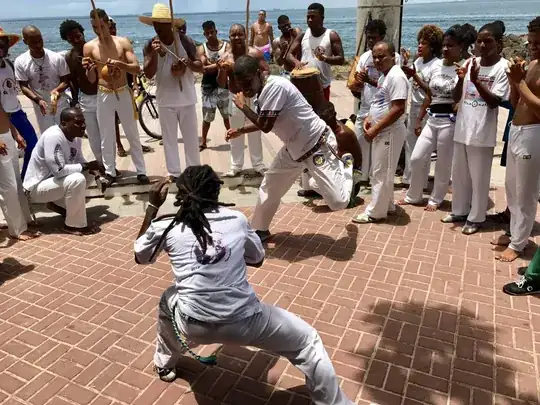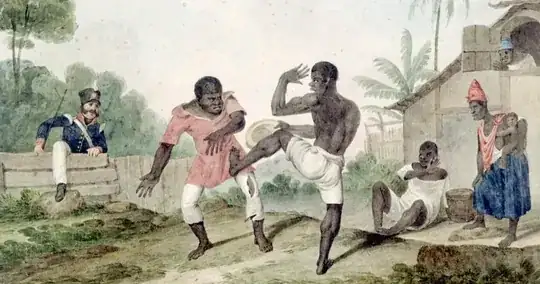This is Brazilian Portuguese, just for context.
In the popular Capoeira song, Paranauê, the second line is almost always "Capoeira me venceu, Paraná" (occasionally, this gets rendered as "Capoeira que venceu, Paraná", which definitely shifts the meaning). What seems to differ is whether people translate that as something like "Capoeira has defeated me" or "Capoeira saved me", with that difference seemingly varying whether the person believes the song is about talking about how Capoeira has taken over their life versus whether it's describing how Capoeira won a war in Paraguay.
One example of the latter can be seen here:
Vou dizer minha mulher, Paraná (I’m going to tell my wife)
Capoeira me venceu, Paraná (Capoeira saved me)
Is either translation correct?

